
Playa Cas Abou: A Caribbean Paradise in Curacao
Playa Cas Abou is a stunning beach located on the southwestern coast of Curacao. This pristine locale is known for its powdery white sand and crystal-clear turquoise waters. Surrounded by lush greenery and rocky cliffs, the beach offers a perfect blend of natural beauty and tranquility. It's an ideal spot for tourists looking to unwind and soak up the sun. The beach is well-equipped with amenities such as beach chairs, umbrellas, and a snack bar offering refreshments and local delicacies. The calm and shallow waters make it a great destination for families with children. For those interested in water activities, Playa Cas Abou is a fantastic spot for snorkeling and diving. The underwater world here is teeming with vibrant coral reefs and diverse marine life, making it a haven for underwater enthusiasts. In addition to its natural allure, Playa Cas Abou is also a starting point for various boat tours and excursions, allowing visitors to explore the surrounding coastline. The beach is part of a private estate, ensuring it is well-maintained and clean. Whether you are looking to relax, explore, or partake in water sports, Playa Cas Abou promises an unforgettable experience.
Local tips in Playa Cas Abou
- Visit early in the day to secure a good spot on the beach, as it can get crowded later.
- Bring cash for the entrance fee and any rentals or purchases at the snack bar.
- Pack snorkeling gear to explore the beautiful underwater world right off the beach.
- Wear water shoes to navigate the rocky areas and protect your feet.
- Keep an eye out for local wildlife, including iguanas and tropical birds, which can often be seen in the area.
Playa Cas Abou: A Caribbean Paradise in Curacao
Playa Cas Abou is a stunning beach located on the southwestern coast of Curacao. This pristine locale is known for its powdery white sand and crystal-clear turquoise waters. Surrounded by lush greenery and rocky cliffs, the beach offers a perfect blend of natural beauty and tranquility. It's an ideal spot for tourists looking to unwind and soak up the sun. The beach is well-equipped with amenities such as beach chairs, umbrellas, and a snack bar offering refreshments and local delicacies. The calm and shallow waters make it a great destination for families with children. For those interested in water activities, Playa Cas Abou is a fantastic spot for snorkeling and diving. The underwater world here is teeming with vibrant coral reefs and diverse marine life, making it a haven for underwater enthusiasts. In addition to its natural allure, Playa Cas Abou is also a starting point for various boat tours and excursions, allowing visitors to explore the surrounding coastline. The beach is part of a private estate, ensuring it is well-maintained and clean. Whether you are looking to relax, explore, or partake in water sports, Playa Cas Abou promises an unforgettable experience.
When is the best time to go to Playa Cas Abou?
Iconic landmarks you can’t miss
Queen Emma Bridge
Explore the enchanting Queen Emma Bridge, a historic landmark connecting Punda and Otrobanda in Willemstad, Curaçao, offering stunning views and vibrant culture.
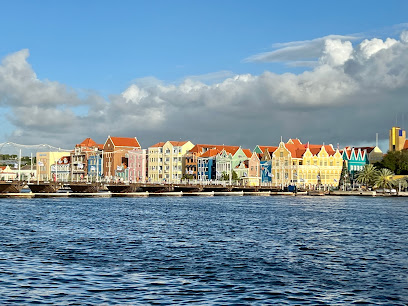
Mambo Beach
Discover Mambo Beach in Willemstad, Curaçao – where crystal-clear waters, vibrant nightlife, and beautiful sunsets await your arrival.
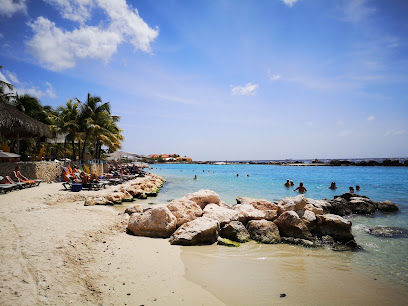
Cas Abao Beach
Experience the breathtaking allure of Cas Abao Beach, where white sands meet clear waters in the heart of Curaçao’s tropical paradise.
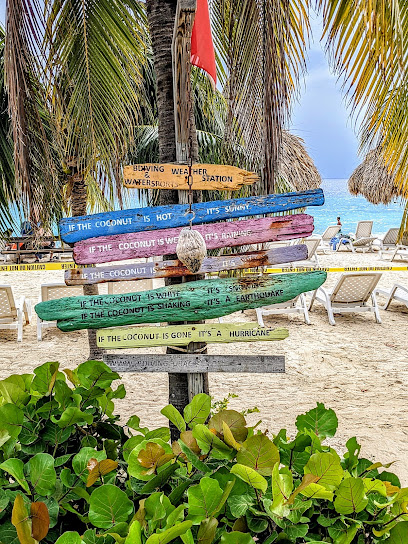
Curaçao Sea Aquarium
Explore marine wonders and engage with vibrant ecosystems at Curaçao Sea Aquarium, a must-visit destination for ocean lovers in Willemstad.
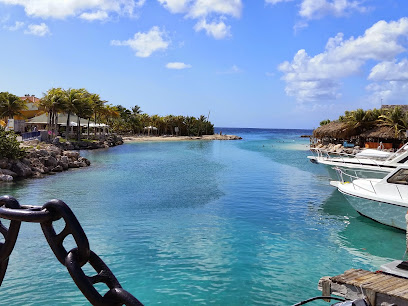
Kokomo Beach
Experience the beauty of Curaçao at Kokomo Beach: turquoise waters, white sand, lively atmosphere, and unforgettable Caribbean memories.
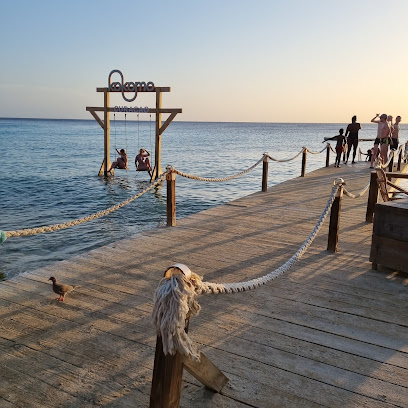
Playa Porto Mari
Discover the enchanting Playa Porto Mari in Curaçao, a tropical haven with stunning beaches, vibrant coral reefs, and delicious local cuisine.
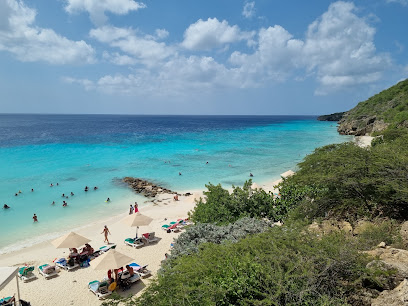
Landhuis Chobolobo
Discover the home of the world-famous Blue Curaçao liqueur at Landhuis Chobolobo, a beautifully preserved 19th-century mansion in Curaçao.
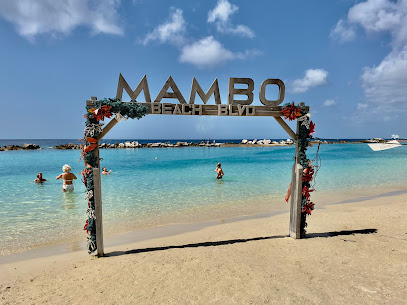
Hato Caves
Discover the enchanting Hato Caves in Curaçao, where natural beauty meets rich history in a captivating underground adventure.
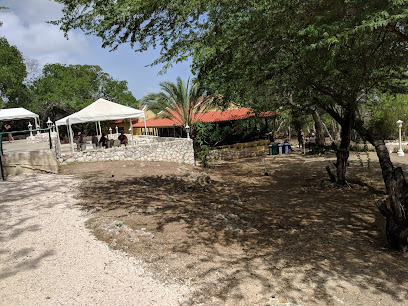
Playa Grandi
Experience the idyllic Playa Grandi in Curaçao, a serene beach paradise perfect for snorkeling and soaking in the sun's warmth.
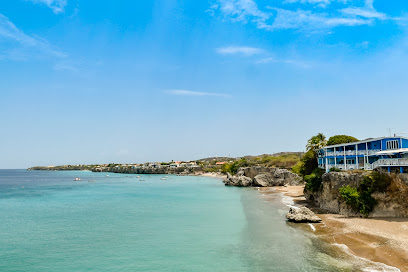
Christoffel National Park
Explore the breathtaking beauty and rich biodiversity of Christoffel National Park, a must-visit destination in Curaçao for nature and adventure enthusiasts.
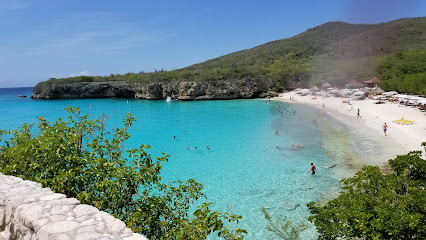
Daaibooi Beach
Discover Daaibooi Beach in Curaçao: A serene paradise with clear waters, excellent snorkeling, and a laid-back Caribbean vibe.
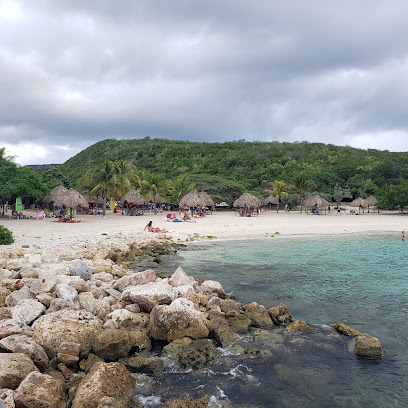
Shete Boka National Park
Discover the breathtaking beauty and diverse wildlife of Shete Boka National Park, a must-visit natural wonder in Curaçao.
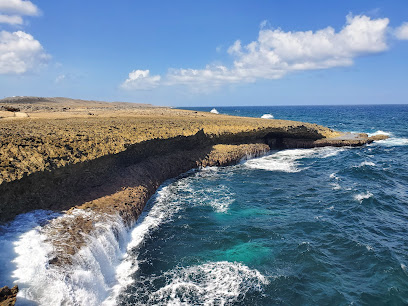
Kleine Knip
Discover the serene beauty of Kleine Knip, a breathtaking beach in Curaçao, offering crystal-clear waters, vibrant marine life, and stunning landscapes.
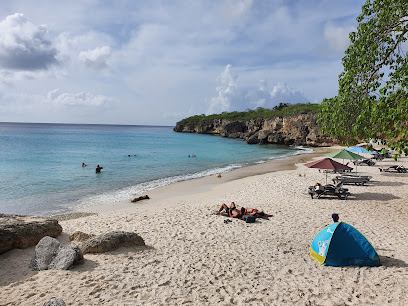
Museum Kura Hulanda
Discover the profound history of Curaçao at Museum Kura Hulanda, where culture, heritage, and reflection come together in an engaging museum experience.
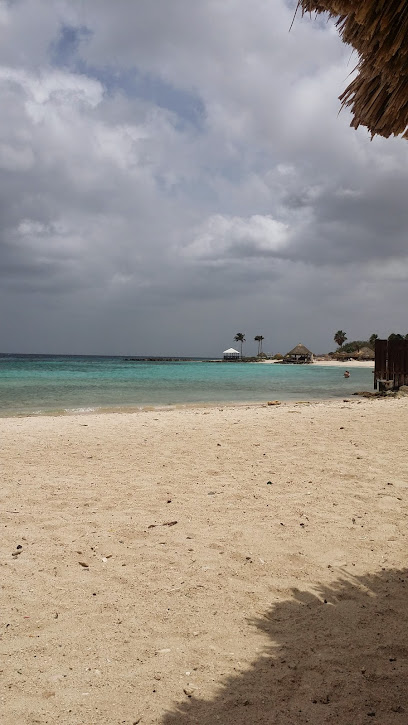
Boka Pistol
Experience the stunning coastal beauty and vibrant marine life at Boka Pistol, a must-visit tourist attraction in Curaçao.
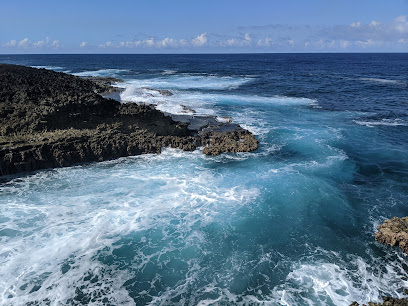
Unmissable attractions to see
Curaçao Sea Aquarium
Discover the wonders of the Caribbean Sea at Curaçao Sea Aquarium: interactive exhibits, dolphin encounters, and a commitment to marine conservation await!
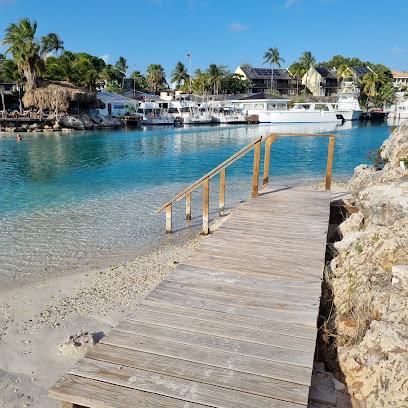
Marie Pampoen Beach
Discover the authentic charm of Marie Pampoen Beach in Curaçao: Relax on golden sands, explore vibrant marine life, and immerse yourself in the local culture for an unforgettable Caribbean experience.
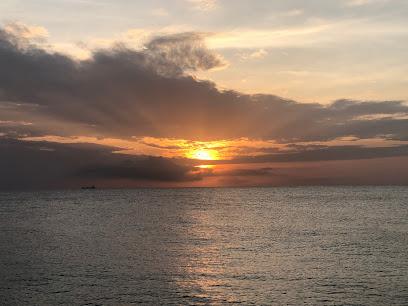
Den Paradera Herb Garden Curaçao by Dinah Veeris
Discover Curaçao's herbal heritage at Den Paradera Herb Garden, a tranquil oasis showcasing over 300 native plants and traditional remedies, founded by Dinah Veeris.
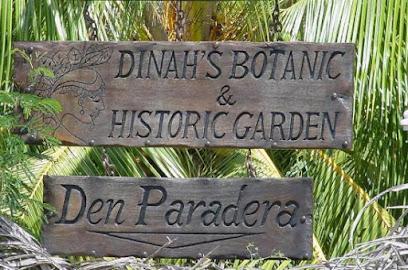
Cas Abao
Experience the breathtaking beauty of Cas Abao Beach in Curaçao, where crystal-clear waters meet soft white sands for a perfect tropical escape.
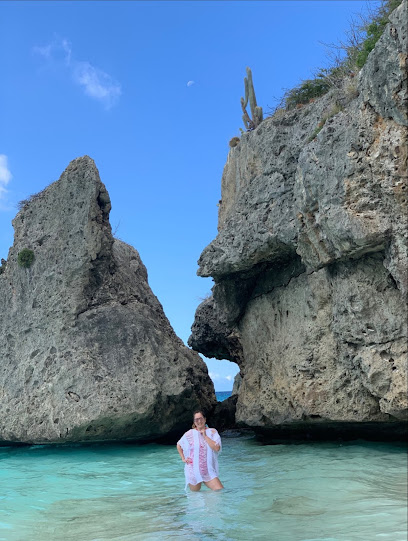
Tugboat Bar
Discover the laid-back charm of Tugboat Bar in Willemstad, Curaçao, where stunning views meet refreshing cocktails in a tropical paradise.
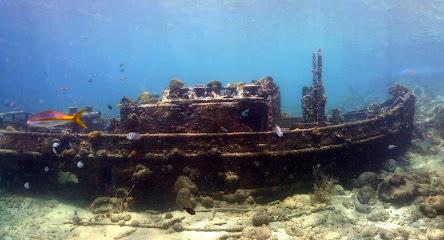
Playa Kanoa
Discover Playa Kanoa in Curaçao: A rugged, natural beach offering surfing, stunning sunsets, and a taste of authentic island life away from the tourist crowds.
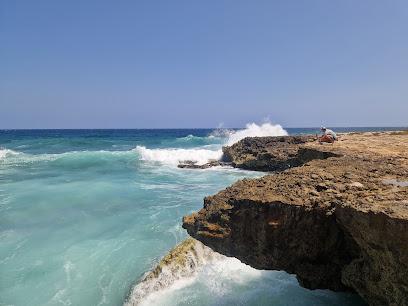
Church of Sint Willibrordus
Discover the architectural beauty and serene atmosphere of the Church of Sint Willibrordus in Curaçao, a blend of history and spirituality.
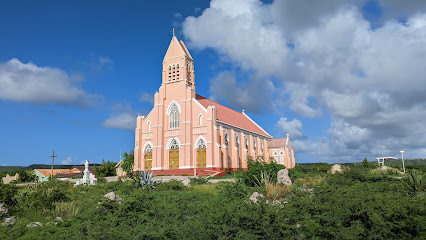
Street Art Skalo
Experience the rich cultural tapestry of Willemstad through stunning murals and vibrant street art at Skarlooweg, an open-air museum that captures the essence of Curaçao's creativity.
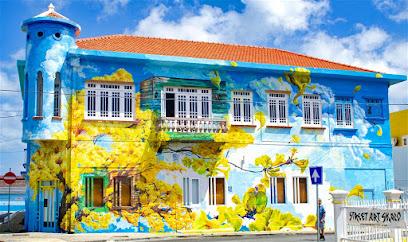
Seru Mateo Trail
Explore the scenic beauty of Seru Mateo Trail in Curaçao, a hiking paradise with stunning landscapes and diverse wildlife waiting to be discovered.
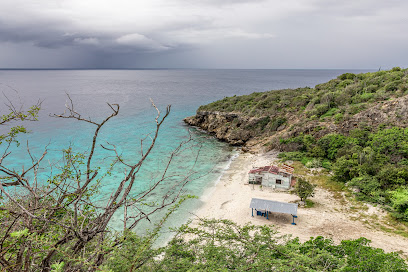
Landhuis Cas Abou
Explore Curaçao's colonial past at Landhuis Cas Abou, a beautifully preserved 17th-century plantation house offering a tranquil escape and a glimpse into the island's rich history and architecture.
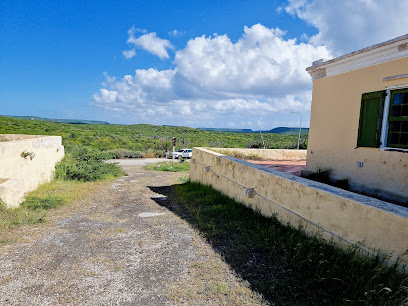
Koraalrif
Discover Koraalrif in Curaçao, also known as Playa Kalki or Alice in Wonderland, a vibrant snorkeling and diving paradise with crystal-clear waters and diverse marine life.
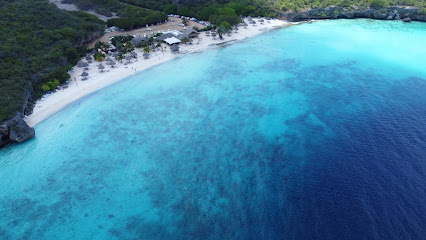
Landhuis Jan Kock
Explore Curaçao's colonial past at Landhuis Jan Kok, now a vibrant art gallery showcasing Nena Sanchez's colorful works, offering stunning views and a unique cultural experience.
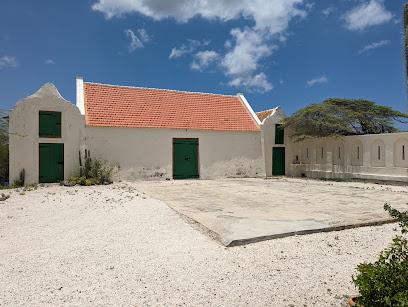
Essential places to dine
Cas Abao Beach
Discover Cas Abao Beach: A pristine Caribbean escape with stunning scenery and vibrant marine life perfect for relaxation and adventure.
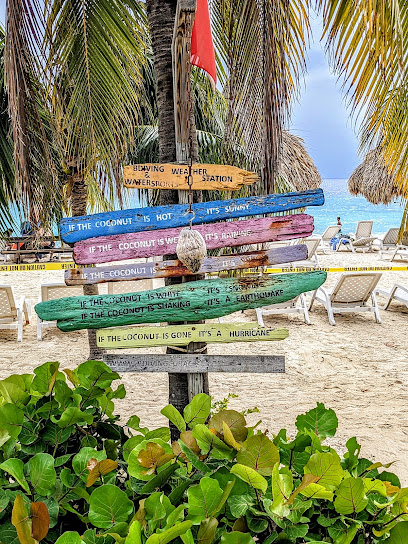
Zanzibar Beach & Restaurant
Discover culinary delights at Zanzibar Beach & Restaurant in Curaçao - where exquisite flavors meet breathtaking ocean views.
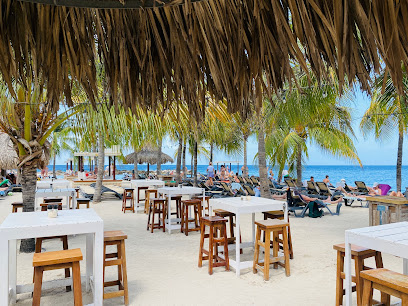
Pirate Bay Curaçao Beach Club and Restaurant
Experience vibrant Caribbean flavors at Pirate Bay Curaçao Beach Club—where ocean views meet delicious dining in a lively atmosphere.
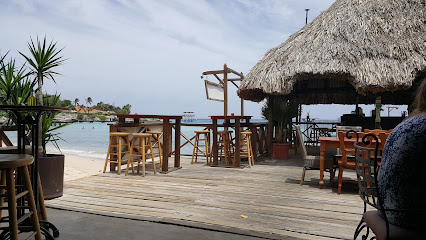
Karakter Beach - Lounge - Restaurant
Discover Karakter Beach in Curaçao: A unique blend of beachside dining with exquisite local flavors amidst breathtaking ocean views.
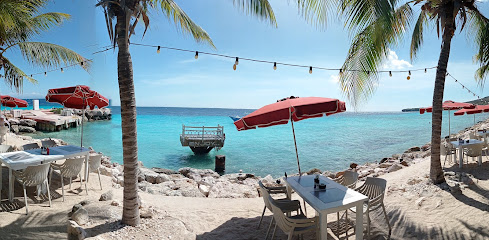
Saint Tropez Ocean Club
Savor exquisite dishes with stunning ocean views at Saint Tropez Ocean Club in Willemstad, Curaçao – a culinary delight awaits.
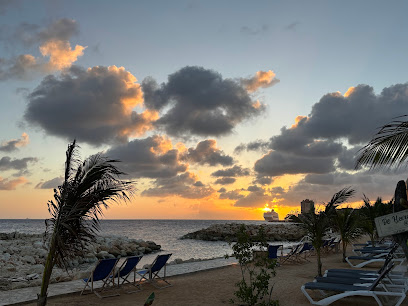
Hemingway
Discover Hemingway in Willemstad: A perfect blend of exquisite cuisine and vibrant nightlife by the Caribbean Sea.
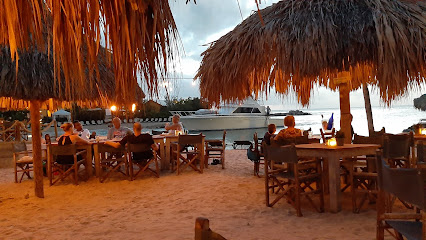
Zest Restaurant& Beach Cafe
Discover Zest Restaurant & Beach Cafe: A Mediterranean Culinary Paradise in Jan Thiel, Curaçao with Stunning Ocean Views.
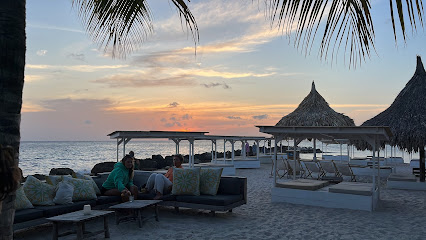
Eetcafé De Buurvrouw
Discover authentic Caribbean cuisine at Eetcafé De Buurvrouw in Curaçao – where every meal tells a story of island flavors.
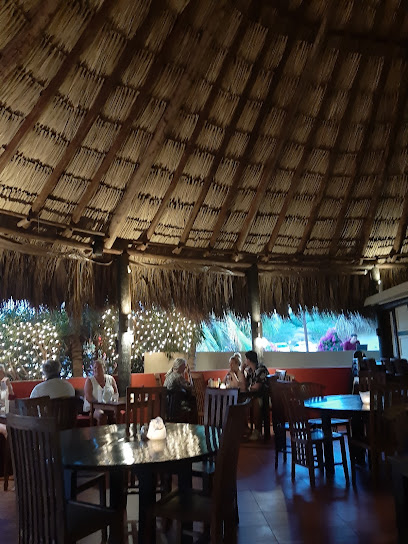
Sea Side Terrace
Experience fresh seafood delights at Sea Side Terrace in Willemstad with stunning ocean views and a vibrant atmosphere.
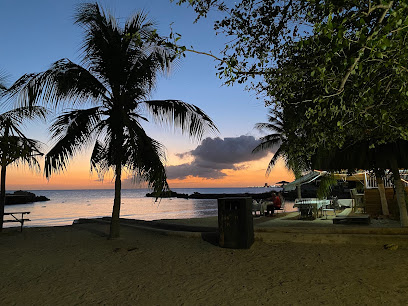
Restaurant Playa Forti
Experience authentic Curaçaoan cuisine at Restaurant Playa Forti while enjoying breathtaking ocean views in Sabana Westpunt.
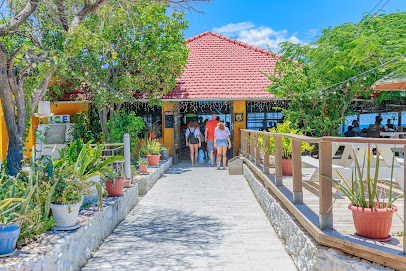
Cabana Beach Curacao
Discover Cabana Beach Curacao: A vibrant beach club offering delicious cuisine, thrilling water sports, and breathtaking sunset views in Willemstad.
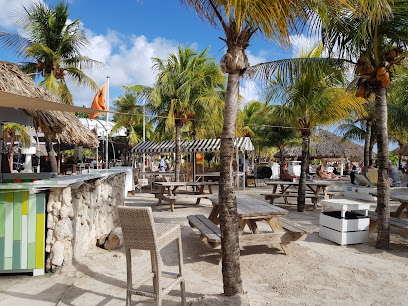
Bali Restaurant Grote Berg
Discover Bali Restaurant Grote Berg - A Culinary Haven Celebrating Authentic Curaçaoan Flavors in a Cozy Atmosphere.
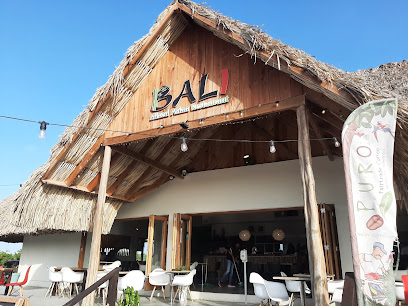
Chill Beach Bar & Grill
Experience vibrant Caribbean dining at Chill Beach Bar & Grill in Willemstad - where delicious food meets breathtaking ocean views.
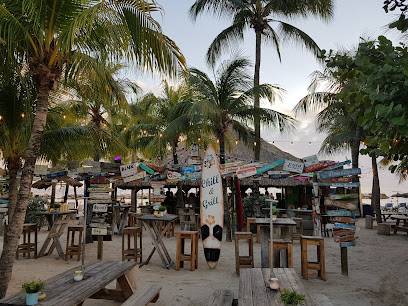
MOOD Beach Curacao
Experience vibrant beachfront dining at MOOD Beach Curacao – where Caribbean flavors meet stunning ocean views.
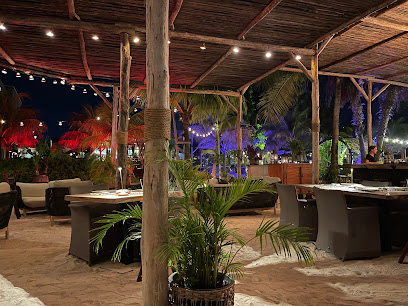
Koko's
Discover Koko's in Jan Thiel: Enjoy exquisite Caribbean cuisine with breathtaking ocean views in a relaxed beachside setting.
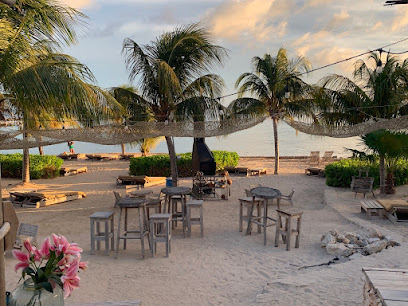
Markets, malls and hidden boutiques
Cas Abao Beach
Experience the serene beauty of Cas Abao Beach in Curaçao, a tropical paradise with stunning waters and vibrant marine life.
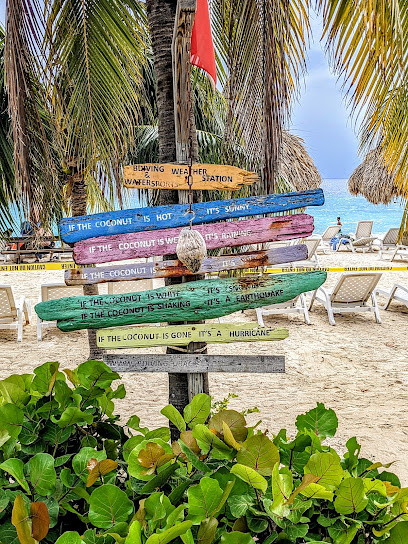
Sambil Curacao
Explore the vibrant Sambil Curacao shopping mall, where a world of local and international brands awaits in a lively atmosphere.
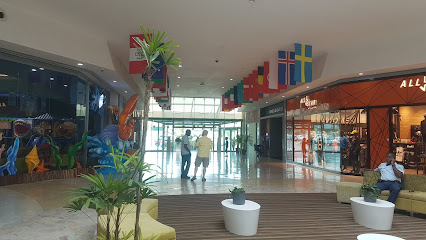
La Curacao
Explore La Curacao in Willemstad for an exceptional shopping experience with a wide variety of products and a taste of local culture.
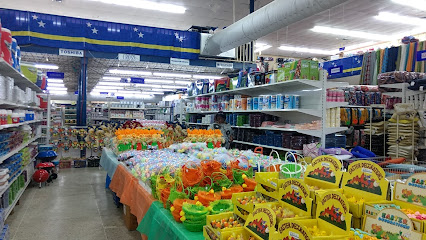
Penha Duty Free Curacao in Punda
Experience a luxurious shopping haven at Penha Duty Free Curacao, where premium perfumes, cosmetics, and fine liquor await in the heart of Punda.
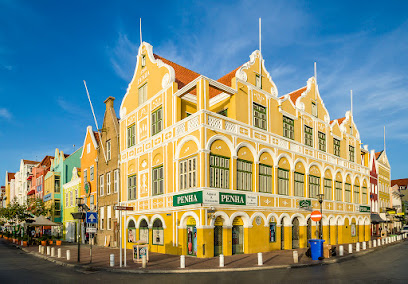
Tapirama N.V.
Explore Tapirama N.V. in Willemstad for the latest in technology and electronics, nestled in the vibrant Mundial Shopping Center of Curaçao.
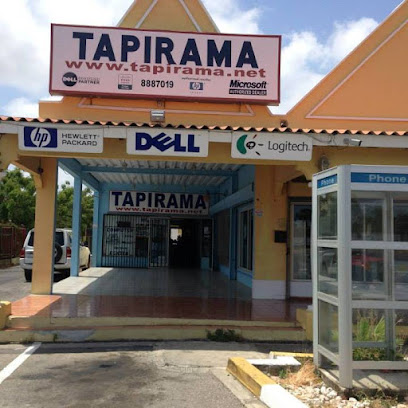
Kids Paradise
Discover Kids Paradise in Willemstad, Curaçao—a family-friendly shopping destination filled with toys, clothing, and educational products for children of all ages.
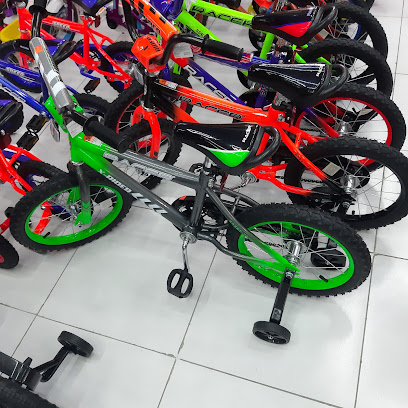
B Diving & Watersports
Experience the best diving and water sports adventures at B Diving & Watersports in Curaçao, where every dive reveals a world of vibrant marine life.
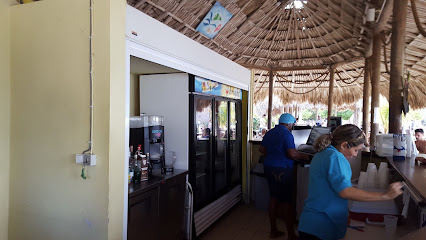
Bloempot Shopping Center
Bloempot Shopping Center in Willemstad offers a vibrant shopping experience with diverse stores and dining options, perfect for tourists seeking local flavor.
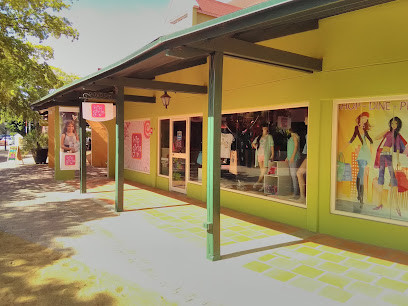
Mister & Miss Exclusive
Discover a unique blend of local and international fashion at Mister & Miss Exclusive, the must-visit clothing store in Willemstad, Curaçao.
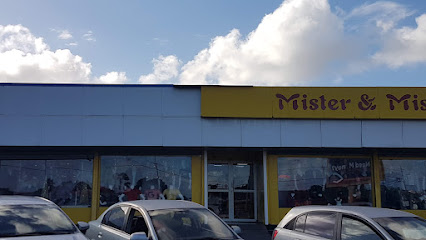
Balani's
Discover stylish clothing and unique fashion pieces at Balani's in Willemstad, the ultimate shopping destination for tourists in Curaçao.
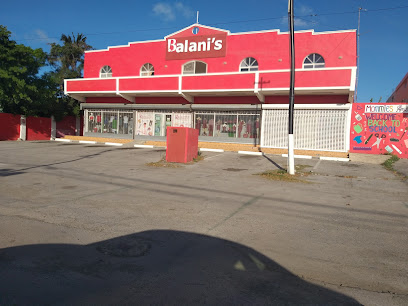
MAYAS CLOTHING CURAÇAO
Explore the vibrant fashion scene at Maya's Clothing in Curaçao, where exceptional style meets local culture and hospitality.
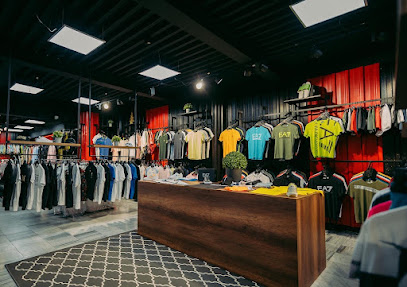
Chichi Shop Punda
Discover authentic Curaçaoan souvenirs at Chichi Shop Punda, where local craftsmanship meets vibrant island culture.
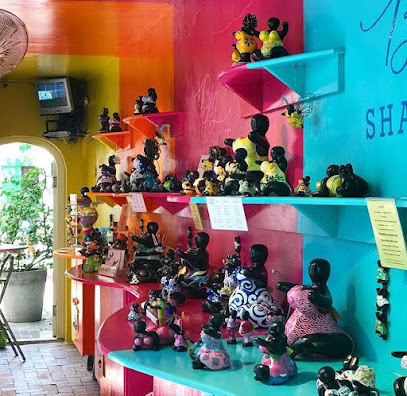
Concept Store by Sea & Sand
Experience the vibrant culture of Curaçao at Concept Store by Sea & Sand, where unique shopping meets local charm.
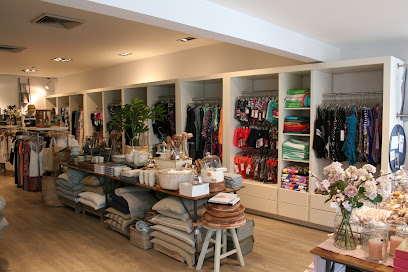
JOY by OPRA
Explore JOY by OPRA in Willemstad, a delightful gift shop showcasing unique local treasures and artisan creations from Curaçao.
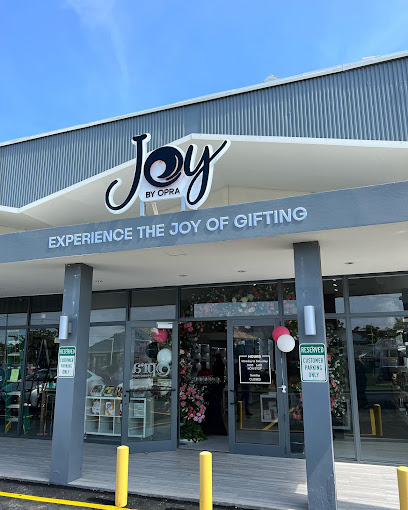
Huan le minimarkt
Discover local flavors and essential supplies at Huan le Minimarkt, your convenient grocery store in the heart of Grote Berg, Curaçao.
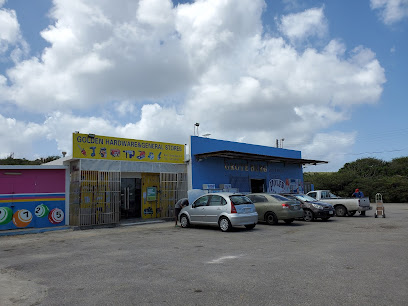
Essential bars & hidden hideouts
Cas Abao Beach
Experience the breathtaking beauty and tranquility of Cas Abao Beach, a must-visit destination in Curaçao for sun lovers and adventure seekers.
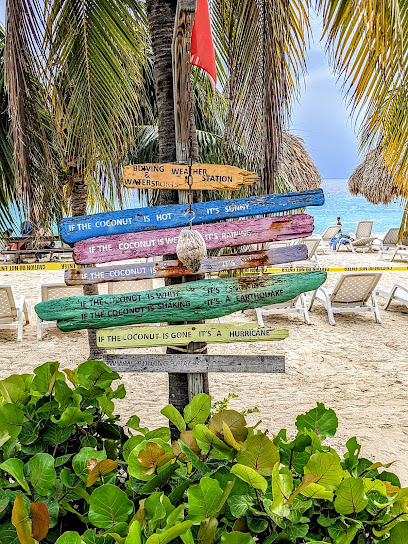
Karakter Beach - Lounge - Restaurant
Discover the ultimate beachfront dining experience at Karakter Beach in Curaçao, where stunning views meet culinary delight in a tropical paradise.
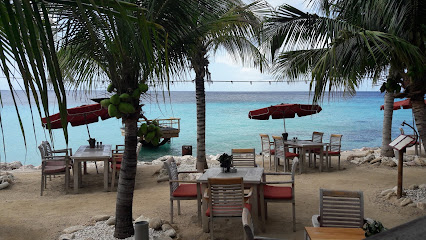
Daaibooi Beach Bar
Discover the vibrant Daaibooi Beach Bar in Curaçao - where tropical drinks, local cuisine, and stunning ocean views come together.
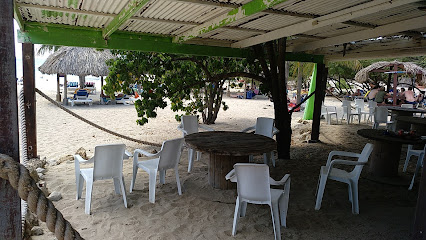
Bahia Beach Bar & Restaurant
Discover the flavors of Curaçao at Bahia Beach Bar & Restaurant, a culinary paradise with a stunning ocean view.
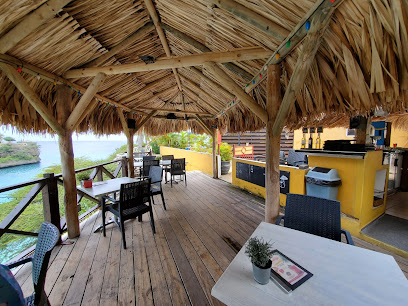
Koraal Rooftop Terrace
Discover breathtaking views and exquisite Caribbean cuisine at Koraal Rooftop Terrace, the ultimate dining experience in Curaçao.
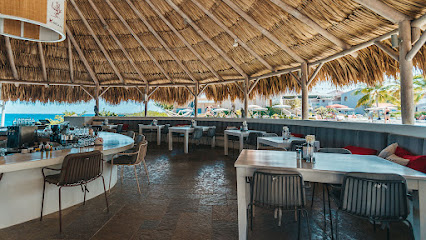
Schooner Bar
Discover the lively ambiance and exquisite flavors at Schooner Bar, the heart of Willemstad's vibrant nightlife scene.
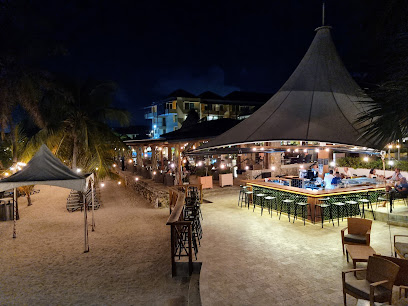
La Fogata Terrace & Sports Bar
Experience the vibrant flavors of the Caribbean at La Fogata Terrace & Sports Bar, a top choice for grill lovers in Willemstad.
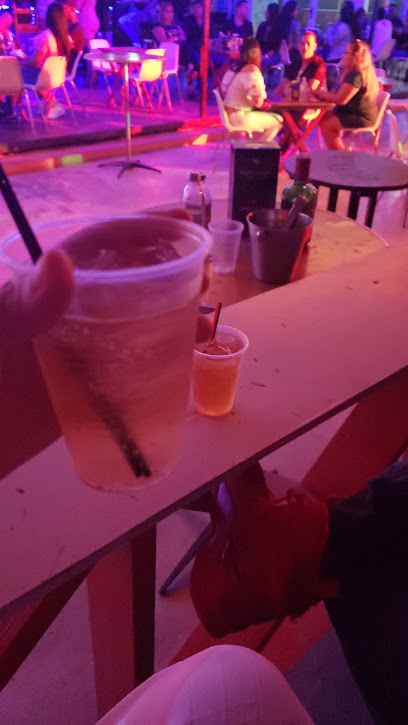
Blend Beach Bar @ Blue Bay Curaçao Golf & Beach Resort
Experience the ultimate beachside relaxation at Blend Beach Bar in Blue Bay Curaçao, where tropical flavors and ocean views await.
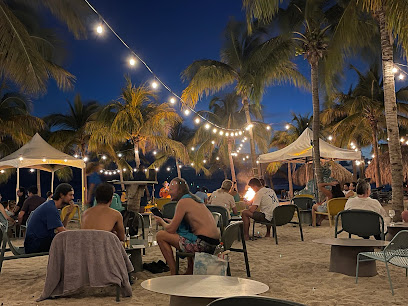
The Hills
Experience the essence of Curaçao at The Hills, where stunning views and exceptional service create an unforgettable tropical retreat.
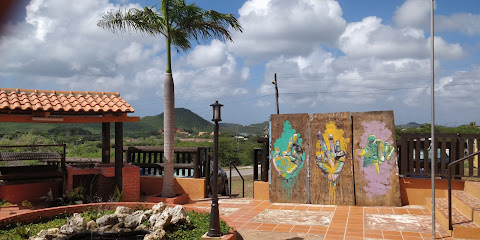
Isei Coco Friu
Experience the vibrant nightlife at Isei Coco Friu, a top bar in Jan Kok, Curaçao, offering delicious cocktails and a lively atmosphere.
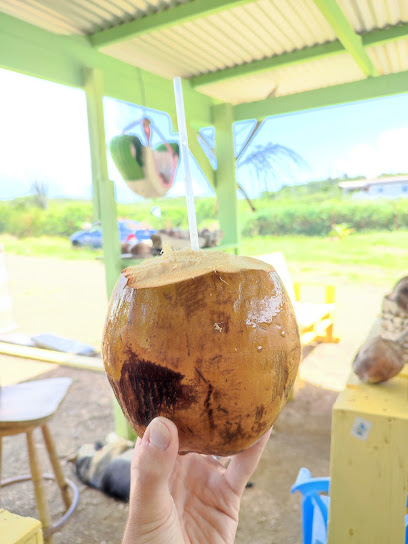
Adegas Restobar
Enjoy a delightful mix of local and international grill cuisine at Adegas Restobar in Tera Kora, Curaçao, the perfect spot for food lovers.
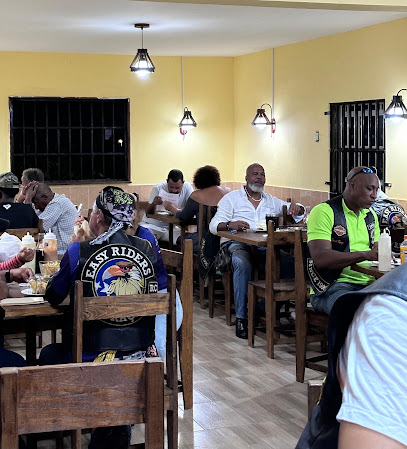
Tabú Bar & Bites Curacao
Experience the best of Curacao's nightlife at Tabú Bar & Bites, where vibrant cocktails and exquisite cuisine come together in a lively atmosphere.
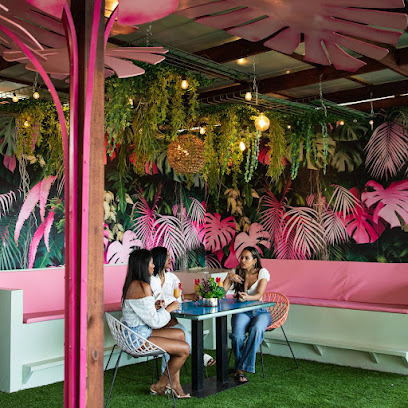
Porto Mari restaurant & bar
Discover the lively Porto Mari Restaurant & Bar in Willemstad, Curaçao, where flavorful cuisine meets a vibrant atmosphere and stunning views.
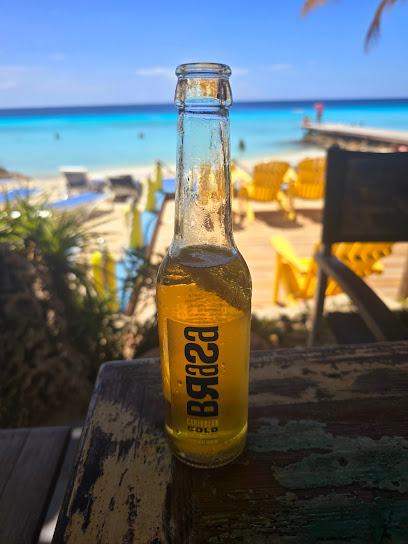
Love Coco f.i.u
Discover the vibrant atmosphere at Love Coco in Grote Berg, Curaçao, where tropical cocktails and local culture come together.
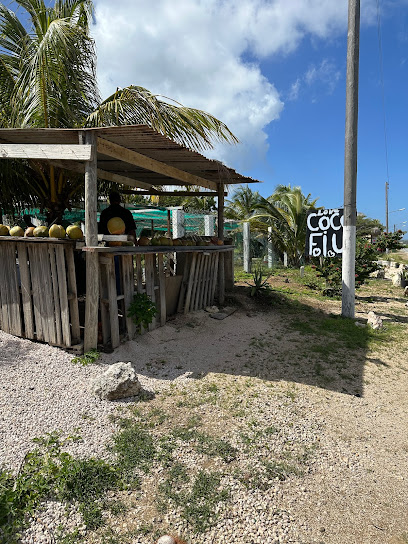
Local Phrases about Playa Cas Abou
-
- HelloBon dia
[bon dee-ah] - GoodbyeAyo
[ah-yo] - YesSi
[see] - NoNo
[no] - Please/You're welcomePor fabor
[por fah-bor] - Thank youDanki
[dahn-kee] - Excuse me/SorryPardon
[pahr-don] - How are you?Kon ta bai?
[kon ta by] - Fine. And you?Bon. I bo?
[bon ee bo] - Do you speak English?Bo papia Ingles?
[bo pah-pee-ah een-gles] - I don't understandMi no kompronde
[mee no kom-pron-deh]
- HelloBon dia
-
- I'd like to see the menu, pleaseMi ke wak e menu, por fabor
[mee ke wahk eh meh-noo, por fah-bor] - I don't eat meatMi no ta kome karni
[mee no tah koh-meh kar-nee] - Cheers!Salud!
[sah-lood] - I would like to pay, pleaseMi ke paga, por fabor
[mee keh pah-gah, por fah-bor]
- I'd like to see the menu, pleaseMi ke wak e menu, por fabor
-
- Help!Yudami!
[yoo-dah-mee] - Go away!Bai bai!
[by-by] - Call the Police!Yama Polis!
[yah-mah poh-lees] - Call a doctor!Yama un dokter!
[yah-mah oon dok-ter] - I'm lostMi a bira perdi
[mee ah bee-rah pehr-dee] - I'm illMi ta malu
[mee tah mah-loo]
- Help!Yudami!
-
- I'd like to buy...Mi ke kumpra...
[mee kee koom-prah] - I'm just lookingMi ta mira solamente
[mee tah mee-rah soh-la-men-teh] - How much is it?Kon ta e preis?
[kon tah eh preys] - That's too expensiveEsaki ta muchu karu
[eh-sah-kee tah moo-choo kah-roo] - Can you lower the price?Bo por baha e preis?
[bo por bah-ha eh preys]
- I'd like to buy...Mi ke kumpra...
-
- What time is it?Kuantu ta ora?
[kwan-too tah oh-rah] - It's one o'clockTa un ora
[tah oon oh-rah] - Half past (10)Mitad di dies
[mee-tad dee deez] - MorningMarduga
[mar-doo-gah] - AfternoonTardi
[tar-dee] - EveningAnochi
[ah-noh-chee] - YesterdayAyera
[ah-yeh-rah] - TodayAwe
[ah-weh] - TomorrowMañana
[mah-nyah-nah] - 1Uno
[oo-noh] - 2Dos
[dohs] - 3Tres
[trehs] - 4Cuatro
[kwah-troh] - 5Cinco
[seen-koh] - 6Seis
[says] - 7Siete
[syeh-teh] - 8Ocho
[oh-choh] - 9Nueve
[nweh-veh] - 10Diez
[dyehs]
- What time is it?Kuantu ta ora?
-
- Where's a/the...?Unda ta e...?
[oon-dah tah eh] - What's the address?Kua ta e adres?
[kwah tah eh ah-dres] - Can you show me (on the map)?Bo por mustra mi (riba e mapa)?
[bo por moos-trah mee ree-bah eh mah-pah] - When's the next (bus)?Kuantu ora ta e siguiente (bus)?
[kwan-too oh-rah tah eh see-gwee-en-teh boos] - A ticket (to ....)Un tiki (pa ....)
[oon tee-kee pah]
- Where's a/the...?Unda ta e...?
History of Playa Cas Abou
-
Before the arrival of Europeans, the island of Curaçao was inhabited by the Arawak and Caiquetio Indians. These indigenous tribes were skilled fishermen and farmers, thriving in the region's bountiful natural resources. Playa Cas Abou, with its rich marine life and fertile lands, was likely an important site for these early settlers.
-
In 1499, Spanish explorers, led by Alonso de Ojeda, arrived in Curaçao. The island was initially deemed unfit for large-scale settlement due to its arid conditions, but it wasn't long before the strategic importance of its location was recognized. Playa Cas Abou, like many parts of the island, saw the establishment of colonial outposts as the Spanish laid claim to the territory.
-
In 1634, the Dutch West India Company seized Curaçao from the Spanish, marking the beginning of a prosperous era. The island became a hub for trade and commerce, particularly in salt and slaves. Playa Cas Abou, with its pristine waters and natural harbor, played a role in the burgeoning maritime activities of the Dutch era.
-
During the 17th and 18th centuries, Curaçao's economy was heavily reliant on plantations. Playa Cas Abou was part of the larger plantation system, where crops like aloe, divi-divi, and indigo were cultivated. The remnants of these plantations can still be seen in the area, offering a glimpse into the island's agrarian past.
-
Slavery was abolished in Curaçao in 1863, leading to significant social and cultural transformations. The freed African descendants and other ethnic groups began to shape the island’s unique cultural mosaic. Playa Cas Abou, like other parts of Curaçao, became a testament to this rich and diverse heritage.
-
In the 20th century, Curaçao developed into a popular tourist destination, with Playa Cas Abou emerging as one of its most beloved beaches. Investments in infrastructure and preservation efforts have transformed it into a pristine getaway known for its clear waters, white sandy beaches, and vibrant marine life. The area continues to attract visitors from around the world, highlighting its historical and cultural significance.
Playa Cas Abou Essentials
-
Playa Cas Abou is located on the western coast of Curaçao. The nearest international airport is Hato International Airport, approximately 30 kilometers away. From the airport, you can rent a car or take a taxi to reach the beach. The drive typically takes around 40 minutes by road. Alternatively, some tour operators offer shuttle services from major hotels and resorts on the island.
-
To explore Playa Cas Abou and its surroundings, renting a car is the most convenient option. This allows you to travel at your own pace and visit nearby attractions. Taxis are also available but can be more expensive. Public buses operate on the island, but their schedules can be irregular, making them less reliable for tourists. Biking is another option for the more adventurous, as the island offers scenic routes.
-
The official currency in Curaçao is the Netherlands Antillean Guilder (ANG), although US Dollars (USD) are widely accepted. Credit cards are accepted in most hotels, restaurants, and shops, but it is advisable to carry some cash, especially for smaller establishments and beach vendors. ATMs are available in major towns, but it’s wise to withdraw sufficient cash before heading to Playa Cas Abou.
-
Curaçao is generally a safe destination for tourists, but it is important to take standard precautions. Avoid walking alone at night in unfamiliar areas and keep an eye on your belongings in crowded places. While Playa Cas Abou is safe, nearby areas like Otrobanda in Willemstad have higher crime rates targeting tourists. Always stay vigilant and aware of your surroundings.
-
In case of emergency, dial 911 for immediate assistance. There are medical facilities and a police station in Willemstad, which is about a 40-minute drive from Playa Cas Abou. It is recommended to have travel insurance that covers medical emergencies. For minor health issues, there are pharmacies in the nearby towns of Barber and Tera Kòrá.
-
Fashion: Do wear lightweight, breathable clothing and bring swimwear for the beach. Avoid wearing overly revealing clothing in town areas. Religion: Do respect local religious customs; Curaçao is predominantly Roman Catholic. Public Transport: Do be patient if using public transport, as schedules can be unpredictable. Don't rely solely on public transport for timely travel. Greetings: Do greet people with a friendly 'Bon dia' (Good day). A handshake is also common. Eating & Drinking: Do try local delicacies like 'Keshi Yena' and 'Funchi.' Don't refuse food or drink offerings, as it can be seen as impolite.
-
To experience Playa Cas Abou like a local, visit the beach early in the morning or late in the afternoon when it is less crowded. Bring your snorkeling gear to explore the vibrant underwater life. Engage with locals at nearby markets in Barber for fresh produce and local crafts. Don't miss out on trying 'Krioyo' cuisine at local eateries for an authentic taste of Curaçao.
Nearby Cities to Playa Cas Abou
-
Things To Do in Barber
-
Things To Do in Sint Michiel
-
Things To Do in Julianadorp
-
Things To Do in Sabana Westpunt
-
Things To Do in Westpunt
-
Things To Do in Willemstad
-
Things To Do in San Nicolas
-
Things To Do in Savaneta
-
Things To Do in Santa Cruz
-
Things To Do in Pos Chiquito
-
Things To Do in Paradera
-
Things To Do in Sero Blanco
-
Things To Do in Tanki Leendert
-
Things To Do in Oranjestad
-
Things To Do in Noord









